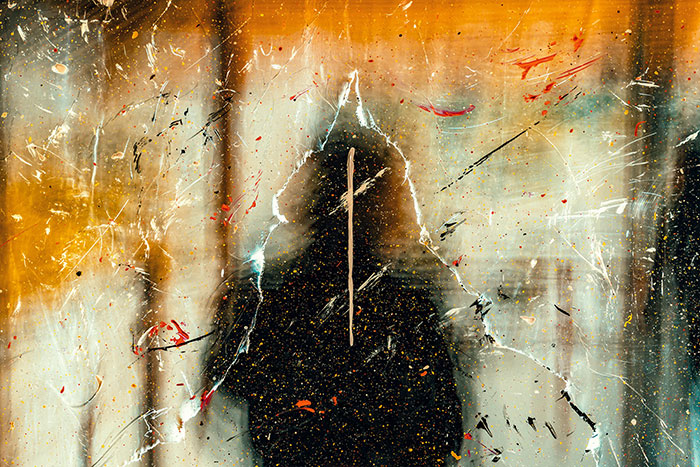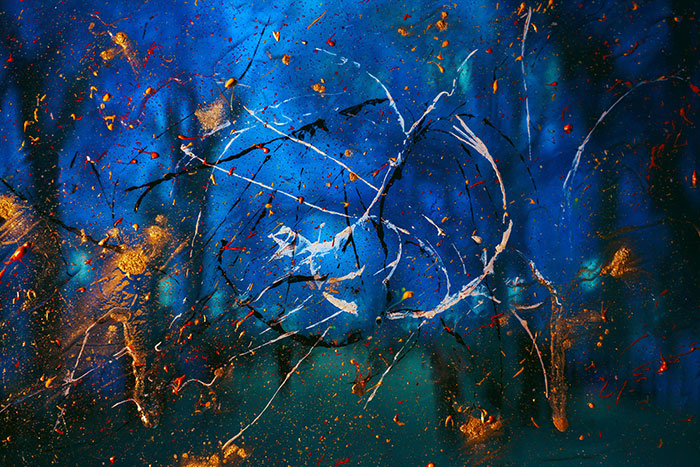Overview: In this solo episode (ep 147), Adam Williams refers to Richard Rohr’s (and Carl Jung’s) spiritual philosophy of the two halves of life. Adam talks about his internal struggles as a creator and human with the external validations and gatekeepers we’re socialized to obey. (Released on podcast on June 20, 2023)
Also on Apple, Spotify, Pandora, Stitcher, YouTube, Google and other players.
EP 147 SHOW NOTES, LINKS & TRANSCRIPT
Connect with Adam Williams
Humanitou on Instagram: @humanitou
About Adam
Artwork
Podcast cover art: Adam Williams
Music
“Old Rope” by Joe Johnson | joejohnsonsings.com
Original Written Version
The other day, I sent out the first Humanitou email newsletter in nearly two years. It used to be a monthly thing. I did it with subtle, quiet purpose this time, and said I don’t know when I might do it again. Then I ignored its “success” and “failure,” as in how many people looked at it and clicked on things, or ignored it and unsubscribed.
I rarely post on Instagram anymore. I quit Facebook, for the last time, several years ago. I don’t bother with LinkedIn these days; my profile just sits. I don’t care about TikTok, either. Twitter? I was there once. It’s at least as cringey and savage and anxiety-inducing as Facebook is, and that’s before Elon musked it up. Enough. A long, long time ago, enough.
Instead, I spend more of my time creating and publishing. And then not telling people about much of it. At least not pointing them to it. If they listen, they listen. If they read, they read. This is where I am now.
I’m tired of jumping through external hoops for external approvals. That part has always been a struggle for me. I’d get sucked into “the way to do it,” like everyone else, competing for attention.
And I’d feel unhealthy about it. I’d watch for the approvals in the form of likes and comments and shares, not that there were tons. There are even less now, given the ever-squeezing out of humanity and honest connection in the social media algorithms.
I feel like a pathetic clown when I try to be something to match others’ clownish ways, in attempts to match even more others’ attention-seeking performances, all to match the algorithms du jour as dictated by the wizards behind the curtain.
“But this is what I have to do, if I want people to know about my work and to love me and to give me money. What if I don’t play along?! What if I’m not on Facebook?!”
I’m so tired. Sure, there’s been a three-year-long pandemic, which was unnecessarily made worse by the abhorrent politics and culture wars, that are factoring into my fatigue. And I’m guessing yours. But … the point is, I’m tired. Of all that’s false and so unnecessary.
The approval-seeking wasn’t always about social media, of course. It’s not new. Being chosen and lifted on high as angels sing has a long, long history. As heralded authors of books and as high-profile journalists, for example.
 There was a season in my 20s when I was a journalist (not high-profile). I also was writing a book and took on rejection after rejection in that process, several dozen of them from publishing houses and agents, only to cast aside the unfinished book (and myself) as a failure for not getting their approval that would verify my somebodiness.
There was a season in my 20s when I was a journalist (not high-profile). I also was writing a book and took on rejection after rejection in that process, several dozen of them from publishing houses and agents, only to cast aside the unfinished book (and myself) as a failure for not getting their approval that would verify my somebodiness.
Now, what I regret is not that I didn’t snare an agent and publisher to validate me, my writing and my idea as worthy. Though, admittedly, to have a published book (or ideally a shelf of books over a career) probably is cool, and part of me still probably would like that sense of accomplishment.
But what I regret is having allowed those externals to be the end of that worthwhile work. I regret not having finished writing the book for myself and for the sons that I now have.
I regret not doing the work that called to me from within, because I believed, like I think many of us do, that things only really matter if others tell us they matter.
That was nearly 20 years ago.
It takes a hell of a lot of courage to buck that belief system that we have swallowed, and in turn have reinforced by insisting others swallow it as well.
In the years since, I’ve wrestled with this divide within myself about knowing what really matters in the creative life, in my life, and what is about externals.
What externals might I need or want to engage with? Surely, there are some. Maybe? And what externals do I not need to chase? What rat-race energy can I step out of and slow down, to feel my own flow? What social games are worth considering for potentially worthy benefits of playing? Are there any?
The battles within are frequent and seemingly ever-present.
We all play into this egoic chasing of identities and self-worth. We’ve socialized each other, taught each other the so-called rules. We all are part of the misguided games that undermine the best in ourselves and each other, and all of us collectively.
Yesterday, I finally started reading Richard Rohr’s book, “Falling Upward: A Spirituality for the Two Halves of Life.” I had encountered that two-halves concept, which actually dates back to the renowned Swiss psychoanalyst Carl Jung’s popularization of it, several times in recent years, in conversations I’ve had myself or have listened to on podcasts.
Steven Pressfield, for example, the bestselling author of “The War of Art,” has talked about Rohr and the two halves of life. I read and respect Steve and his work for many reasons. When he was on the Humanitou podcast, I asked him about the two halves of life.
I knew at that point that I had to read Rohr’s work more deeply. Now, that time has come.

I’ll gist the “two halves of life” concept here, pulling from an article Rohr published on the website for the Center for Action and Contemplation, which he founded in Albuquerque, N.M.:
“The first half of life is spent building our sense of identity, importance, and security—what I would call the false self and Freud might call the ego self. Jung emphasizes the importance and value of a healthy ego structure. But inevitably you discover, often through failure or a significant loss, that your conscious self is not all of you, but only the acceptable you. You will find your real purpose and identity at a much deeper level than the positive image you present to the world.
“In the second half of life, the ego still has a place, but now in the service of the True Self or soul, your inner and inherent identity. … In the second half of life we discover that it is no longer sufficient to find meaning in being successful or healthy. We need a deeper source of purpose.”
For a while now, I’ve felt less and less willing to go against myself and play the attention-seeking game, because I think I should. And just because someone creates and shares their work publicly, it doesn’t mean it’s about attention, that it’s about vanity. I’ve written and talked on the podcast about why I share.
I do want people to read my writing. I do want people to take interest in my photography and visual artwork. And I do want people to listen to my podcasts.
But I hope I’m done chasing the approval of it. I say “hope,” in full honesty. The socialization we’re all part of is powerful and all-consuming. You feel that, right? It’s a lifelong struggle to break free from it.
As these humans that we are, we fall back on what we’ve practiced most, and we’ve all been swimming in those egoic identity, social competition waters for a longggg time.
But to get attention for good, great work, the marketing and branding of ourselves takes far more energy than we get to put into the creating, and the self-study we dig into when we’re creating.
It takes more resources to hype the crowd – or even to draw a crowd to begin with! – than to do the work that we want it to know about.
Right now, I think I just want to think of it like this: I’d rather die an old man who lived and loved a creative life, and was prolific in his work, than to make only a fraction of that work, and then spend the rest of my time encouraging others to determine its value for me.
I’m good at the things I do. I’m especially good at that creative work, considering I spread myself across several mediums. I don’t specialize, as much as I envy those who do and are able then to become other-wordly amazing by doing so. I’ve learned that’s not who I am; such single-minded focus is not the work for me to do.
I have love for knowing and expressing myself in a variety of mediums. I’ve learned that and I embrace that. And still, I’m damn capable in each of those veins of creating.
I invite people to come along. I welcome you. I hope what I create can ripple light and positive impacts for you and others. Truly. But more than ever, I’m aware of my standing in this second half of the spiritual life, as it’s described by Rohr and Jung, and in the second half of my life, in terms of my age.

I don’t have time to chase social media likes and status-making magazine editors and book publishers that might count as feathers in my cap. I don’t even have enough time left in my life, though I’m still young at 46 years old, to create and learn and express all that I feel is within me.
My urgency is shifting – has shifted! – from pleading for attention to creating against the clock of this life.
Should opportunities come, I’m open for the conversations. Always. Should they not, because I didn’t prostrate myself at the feet of gatekeepers and tastemakers and soulless digital algorithms, then they have failed to know me.
Not because I didn’t do the work or do good work, or share it publicly. I do all those things. I just am doubtful that my work must include relentlessly or desperately chasing others and trying to persuade them to care about it.
Listen, as a teenage boy, if I was interested in a girl, but she wasn’t sure about me, I didn’t do that Hollywood romance thing of pursuing her. Fuck that. To me, anything that’s not a “yes” is a “no,” and you’ve only got to tell me once. I’m gone.
If a girl didn’t know I was interesting and worth her time, then I was turned off. If she couldn’t see me, I wasn’t going to hang out hoping to be seen.
Hell, my own wife, Becca, who I’ve now had a wonderful relationship with for 20 years, initially rejected me, preemptively. We were grad school classmates and when she thought I might have an interest in her, for whatever reason she thought that, she preemptively dismissed me by encouraging me, unsolicitedly, to ask out the girl I was already dating at the time, unbeknownst at the time to my now-wife.
Yikes! Unnecessary rejection. But heard loud and clear. After that, I never would have asked Becca out. She never would have become my wife. But a month later, she woke up crushing on me. Out of the blue, she still says. And she asked me out for drinks. But that dips into another story for another time.
So it is known, by me and now you, that not only am I tired of the social games, I only ever really was begrudgingly into them, if at all. If the algorithms and editors aren’t interested, then they fail to know me. I don’t fail to persuade them to know me. That’s not my work.
I will never again fail to know myself in response to others not taking interest in my work, like that book so many years ago. And I will not fail to let my sons know me through my work, either. I will not shelve my worth upon the piles of external rejections again. I’ll finish my work, regardless.
I vow to myself now to always do the work and let the outcomes fall how they may. I proclaim it aloud here so that I hold myself accountable to that.
And here’s to wishing you the same, should you be in this second half of life with me, should you have any idea or interest in what I’m talking about right now, should you feel what I’m saying and be joyful in knowing that you are not alone in this life. Onward.
Photos by Jr Korpa


